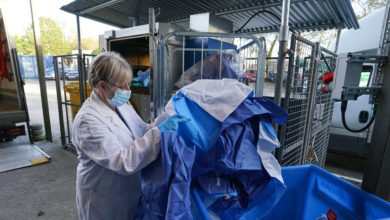Melatonin Poisoning in Kids Is on the Rise: Study

ItIn a world that is flooded with sleep-aids on the market, melatonin has been gaining popularity. It is a naturally-occurring hormone that regulates sleep-wake cycles and can be used as a supplement for jetlag, insomnia and other disorders. According to Statista, the U.S. market research firm, melatonin sales have increased rapidly from $285m in 2016 to $820m in 2020.
But melatonin’s ubiquity poses dangers for kids, finds a new study published by the U.S. Centers for Disease Control and Prevention’s Morbidity and Mortality Weekly Report (MMWR). The number of people 19 years and younger who have accidentally taken melatonin from their bodies rose by 530% between January 2012 and Dec 2021. However, this increase was most dramatic during the COVID-19 pandemic in 2020-2021.
The research, led by Dr. Karima Lelak, a pediatrician at the Children’s Hospital of Michigan, relied on reports made over the past decade to the American Association of Poison Control Centers’ National Poison Data System. Over that time, investigators found that there had been 260,435 reports of children suffering from pediatric melatonin poisoning. However, in 2012 only 8,337 cases, or 0.6%, were recorded. By 2021 the number had leapt to 52,563, representing 4.9% of the total—making melatonin the most frequently ingested substance reported to the system.
A little over 84% of these incidents were in children under 5 years old. More than 94% of cases were accidental. Children found and consumed the medication themselves. That kind of accidental poisoning is especially likely with melatonin since, while the product is sold in tablet, capsule and liquid form, it is also sold as sweet-flavored gummies—making it especially appealing to kids.
While the American Academy of Pediatrics supports giving small amounts of melatonin in children for sleep aids, they recommend that parents discuss this with their pediatricians. However, excessive melatonin use can lead to headaches, nausea, vomiting, diarrhea, irritability and joint pain. It can also affect the central and cardiovascular nervous systems in severe cases. Nearly 4,100 people were hospitalized in the cases. Nearly 300 patients required intensive care. Children had to be given respirators in five cases. In two other cases the child died.
This problem has clearly been driven by the pandemic. For one thing, children have spent more time at home—especially during 2020—creating greater opportunity for them to stumble upon and ingest melatonin. Also, adults were more likely to report sleep problems during lockdown which led to an increase of sales for melatonin. “This pandemic-related increase in accessibility and availability might have contributed to increased exposures in children,” the researchers write.
Most of those admitted to hospital were teens who had taken melatonin in an intentional way. Whether they overdosed accidentally or were attempting to self-poison—a disturbing trend that’s also on the rise—was not explored in the MMWR study.
Melatonin supplements, including those containing melatonin, are often not regulated. This is causing melatonin poisoning to worsen. Researchers at MMWR cite another study that found the amount of melatonin in each dosage varied by nearly 25% from the claims on labels in almost three quarters of bottles and packages examined. The melatonin levels in one instance varied between lots by as much 465%. “The most variation,” the researchers write, “was found in the chewable formulation, which is most likely to be used by children.”
According to the researchers, melatonin supplements should not be sold in child-resistant containers. Doctors should also take extra care in warning potential side effects of melatonin before prescribing it. “Public health initiatives should focus on raising awareness of increasing melatonin ingestions among children,” the researchers write, “and on preventive measures to eliminate this risk.”
Here are more must-read stories from TIME





